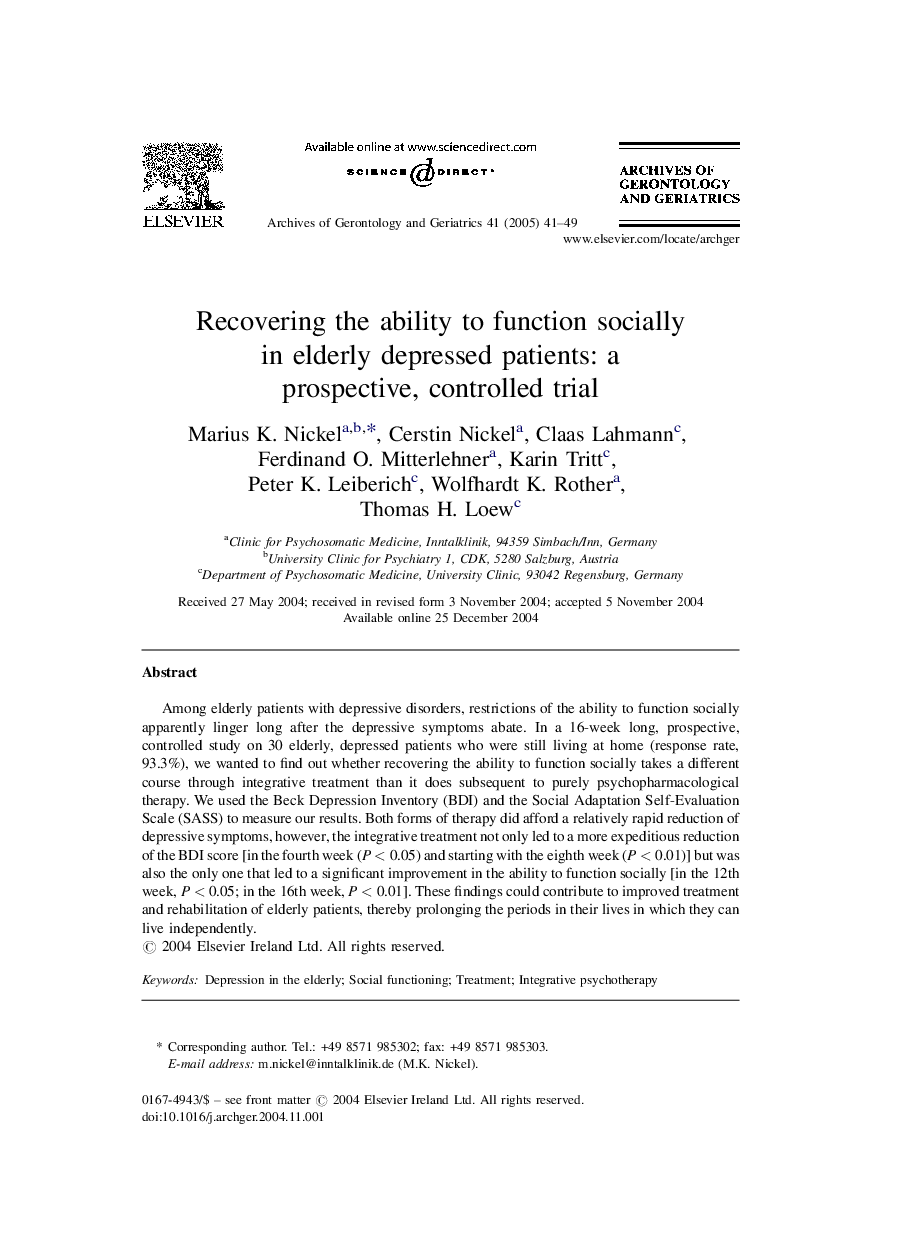| Article ID | Journal | Published Year | Pages | File Type |
|---|---|---|---|---|
| 9878908 | Archives of Gerontology and Geriatrics | 2005 | 9 Pages |
Abstract
Among elderly patients with depressive disorders, restrictions of the ability to function socially apparently linger long after the depressive symptoms abate. In a 16-week long, prospective, controlled study on 30 elderly, depressed patients who were still living at home (response rate, 93.3%), we wanted to find out whether recovering the ability to function socially takes a different course through integrative treatment than it does subsequent to purely psychopharmacological therapy. We used the Beck Depression Inventory (BDI) and the Social Adaptation Self-Evaluation Scale (SASS) to measure our results. Both forms of therapy did afford a relatively rapid reduction of depressive symptoms, however, the integrative treatment not only led to a more expeditious reduction of the BDI score [in the fourth week (PÂ <Â 0.05) and starting with the eighth week (PÂ <Â 0.01)] but was also the only one that led to a significant improvement in the ability to function socially [in the 12th week, PÂ <Â 0.05; in the 16th week, PÂ <Â 0.01]. These findings could contribute to improved treatment and rehabilitation of elderly patients, thereby prolonging the periods in their lives in which they can live independently.
Keywords
Related Topics
Life Sciences
Biochemistry, Genetics and Molecular Biology
Ageing
Authors
Marius K. Nickel, Cerstin Nickel, Claas Lahmann, Ferdinand O. Mitterlehner, Karin Tritt, Peter K. Leiberich, Wolfhardt K. Rother, Thomas H. Loew,
